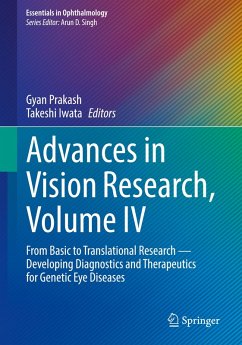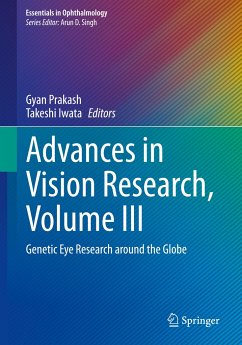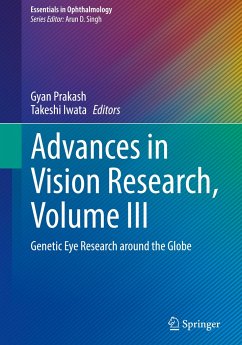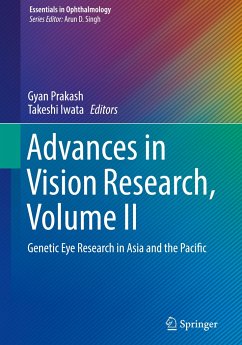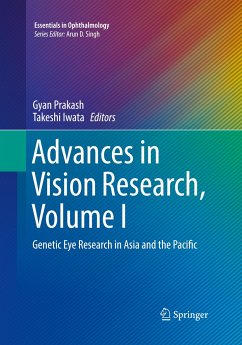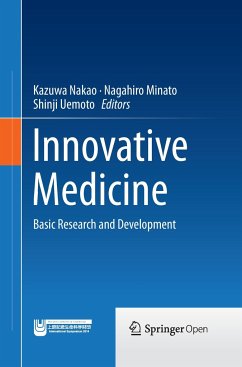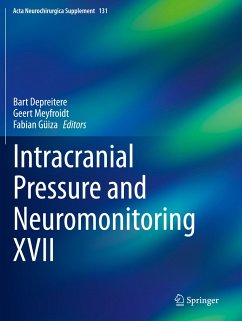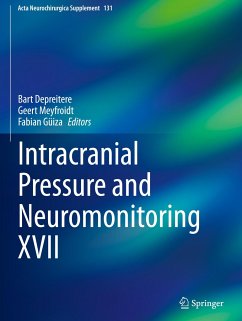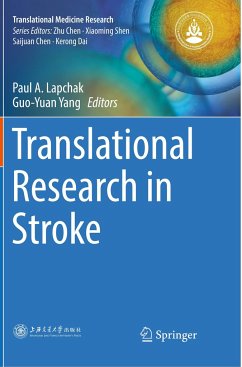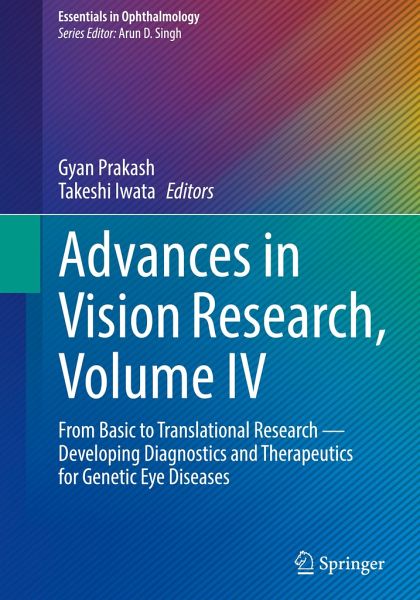
Advances in Vision Research, Volume IV
From Basic to Translational Research - Developing Diagnostics and Therapeutics for Genetic Eye Diseases
Herausgegeben: Prakash, Gyan; Iwata, Takeshi

PAYBACK Punkte
56 °P sammeln!
This fourth volume in the series Advances in Vision Research describes importance advancements in basics to translational research, including new therapeutics for genetic eye diseases. Recent US FDA approval of the first gene therapy for an inherited retinal disease, due to a mutation in the RPE65 gene, has led to an upsurge in translational eye research. The coverage in this volume includes corneal diseases, myopia, cataract, glaucoma, inherited retinal diseases, inherited optic neuropathy, and other genetic eye diseases. New developments such as the application of artificial intelligence in ...
This fourth volume in the series Advances in Vision Research describes importance advancements in basics to translational research, including new therapeutics for genetic eye diseases. Recent US FDA approval of the first gene therapy for an inherited retinal disease, due to a mutation in the RPE65 gene, has led to an upsurge in translational eye research. The coverage in this volume includes corneal diseases, myopia, cataract, glaucoma, inherited retinal diseases, inherited optic neuropathy, and other genetic eye diseases. New developments such as the application of artificial intelligence in translational eye research are also discussed. All chapters are written by leading researchers working on eye genetics from the fields of Human Genetics, Ophthalmology, Molecular Biology, Biochemistry, Sensory Sciences, and Clinical Research. Advances in Vision Research, Volume IV will be a major resource for all researchers, clinicians, clinical researchers, andallied eye health professionals with an interest in eye diseases around the globe. The first two volumes in the series described the state of the art in genetic eye research in Asia and the Pacific while the third focused on progress in Europe and the United States.



